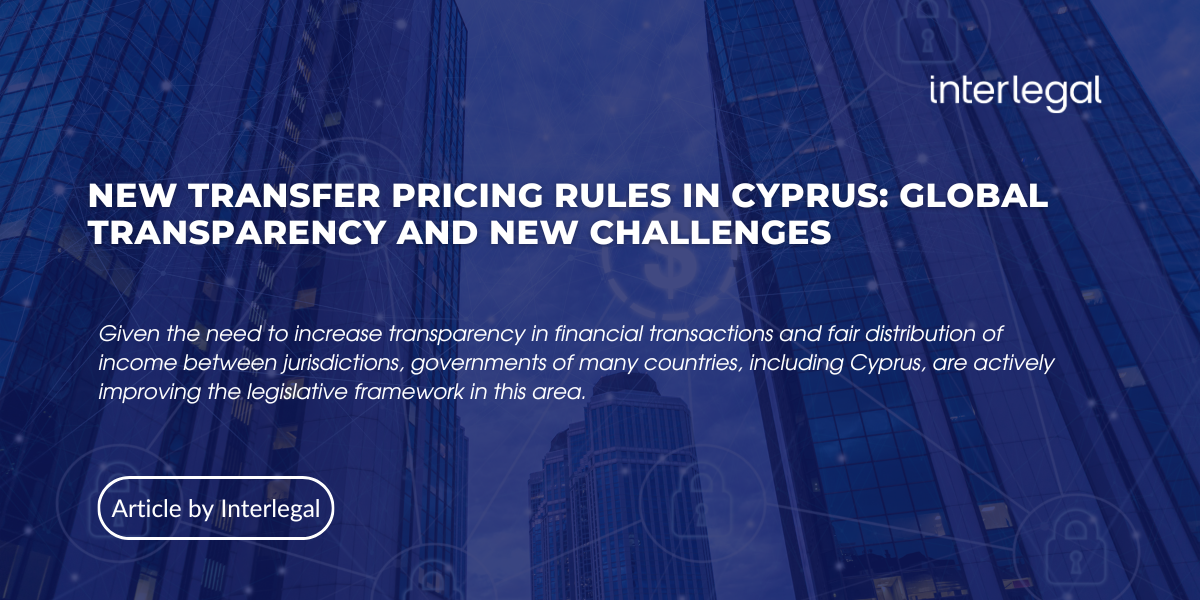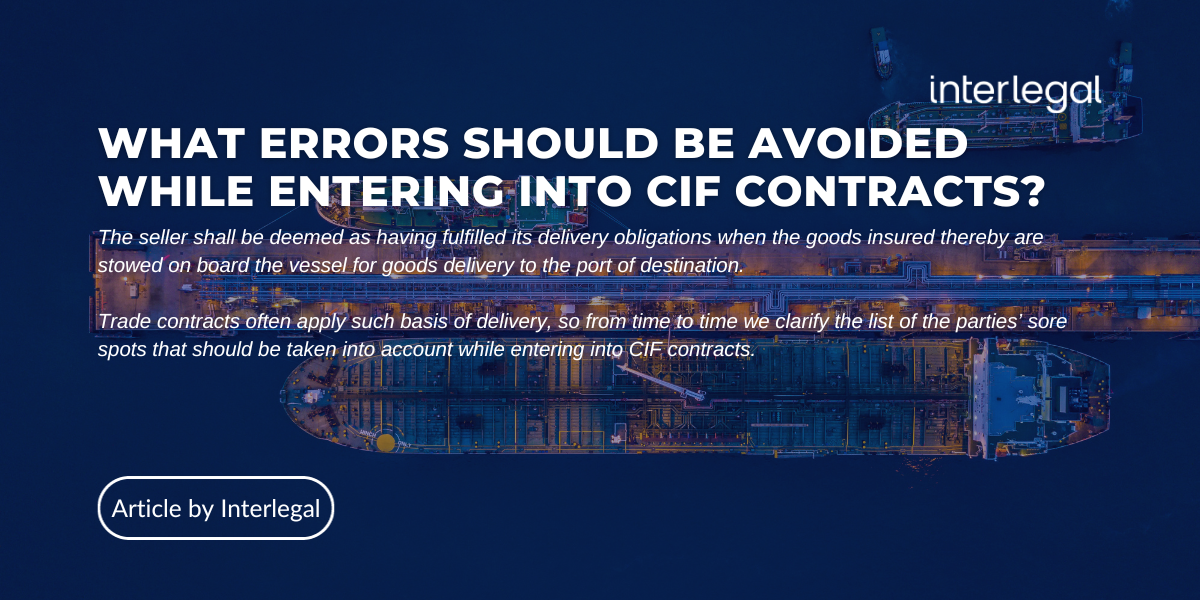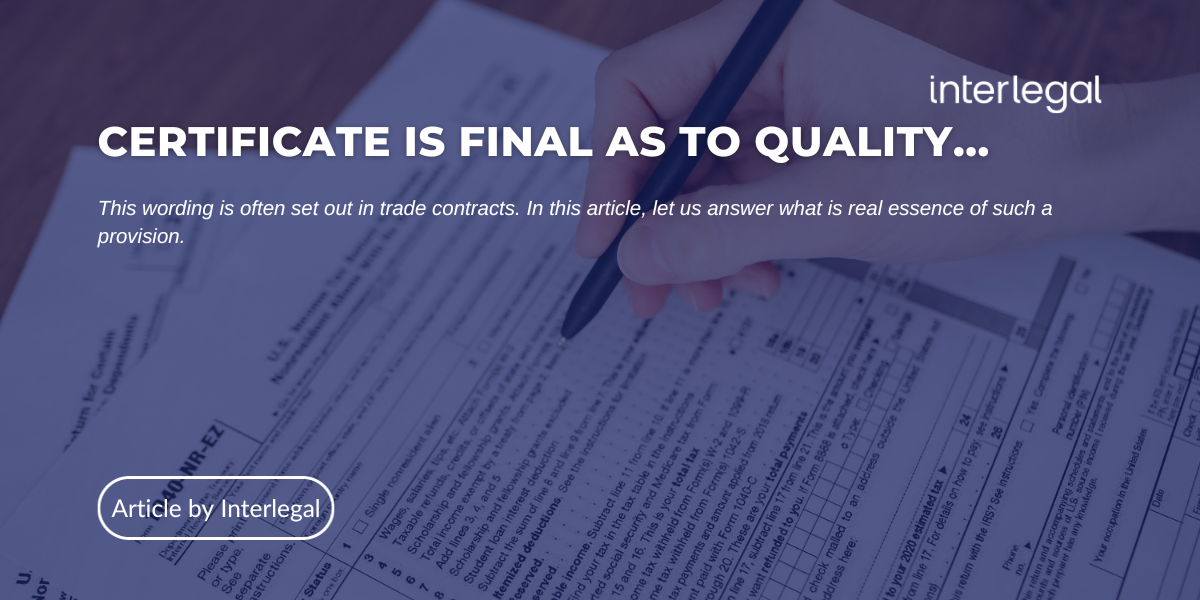Tips on enforcement of foreign arbitral awards against state-owned companies in Ukraine
27 November, 2013
4
Foreign arbitral award can be enforced in Ukraine within 3 (three) years from the moment of its entering into legal force.
To recognize and enforce a foreign arbitral award in Ukraine a Creditor (the person in whose favor the Award is issued) shall file an application on recognition and enforcement of foreign arbitral award to the Ukrainian court of general jurisdiction (local court) at the location of a Debtor (the person against whom the Award is issued).
Together with the application on recognition and enforcement the Creditor may file the application requesting to secure the Creditor’s claim against the Debtor’s assets in Ukraine on which the court shall issue interim decision.
In the course of proceedings the Debtor is entitled to present his objections to the enforcement of the award based on the grounds listed in the Article V of the New York Convention.
Depending on actual circumstances of the case Ukrainian court may issue the decision granting recognition and enforcement of the foreign arbitral award in Ukraine or rejecting in it.
Once the court decision is in force the court shall issue a writ of execution.
With the court decision and writ of execution at hand, the Creditor shall appeal to the state enforcement service of Ukraine at the Debtor’s location with a petition to enforce the award and follow the enforcement proceedings prescribed by law.
Ukrainian courts clearly demonstrate bureaucratic approach to the cases of this type and demand from the applicant clear and strict compliance with the procedure and due checking of all the documents from formal point of view. Therefore, to avoid the risk of rejecting the application under the formal points, the application must be served with attached documents which are to be duly issued and prepared as we comment below.
Under the law requirements together with application the Creditor shall submit the documents as follows:
1. duly certified copy of the Award;
It means that the Award is to be issued on the Tribunal’s letterhead duly signed and stamped, apostilized or legalized with notarized translation to Ukrainian attached.
2. official document evidencing that the Award is final and has entered into legal force (if it is not specified in the Award);
The Award should state that it is final and has entered into legal force on the date of issue otherwise an official letter evidencing that the Award is final and has entered into legal force on such issue date shall be provided. Such document shall be issued on the tribunal’s letterhead duly signed and stamped, apostilized or legalized with notarized translation to Ukrainian attached.
3. arbitration agreement between the parties;
In the event when the Parties have not entered into a separate arbitration agreement the main contract with arbitration clause, clearly stating that the Tribunal that issued the award was authorized body to consider the dispute, shall be provided. The notarized translation of complete text of such contract to Ukrainian shall be attached.
4. document evidencing that the Debtor was duly notified on the time and place of the arbitration;
Clear evidences that all notices were duly served to and received by the Debtor shall be attached to the application.
5. document defining in which part or from which date the Award is enforceable;
The best way is when the Award states in which part or from which date it is enforceable, otherwise an official document stating this clearly shall be provided. Such document shall be issued on the tribunals letterhead duly signed and stamped, apostilized and legalized with notarized translation to Ukrainian attached.
6. POA duly authorizing the Creditor’s representative;
POA shall clearly state names of the persons authorized, the scope of authorization, numbers of passports of Ukrainian citizens. Such POA shall be duly signed and stamped, apostilized or legalized with notarized translation to Ukrainian attached.
As we have stated before Ukrainian court may issue the decision granting recognition and enforcement of the foreign arbitral award in Ukraine or rejecting in it. The application may be rejected for formal reasons or due to specific circumstances of the case.
Article 396 of the Civil Procedure Code of Ukraine provides that the court may refuse in recognition and enforcement of the Award for the following reasons:
1. the Award have not entered into legal force according to the legislation of the country where it was issued;
2. the Debtor was deprived from the opportunity to participate in the arbitration for the reasons of undue notification on the time and place of the arbitration;
3. the Award is made in the dispute that is under exclusive jurisdiction of the Ukrainian court or other authorized state body of Ukraine;
Points 1-3 are formal reasons for rejection of the application. Filing the application with attached documents which are issued as advised above we consider to be enough to avoid rejection of the application under these reasons.
4. Ukrainian court has issued the decision on the dispute between the same parties, on the same subject, on the same basis that have entered into legal force. Ukrainian court is considering the case on the dispute between the same parties, on the same subject; on the same basis, consideration of which was initiated prior the beginning of the arbitration proceedings;
To avoid rejection of the application for this reason we recommend prior the initiation of arbitration proceedings to check through the register of court decisions whether any Ukrainian court has a pending case and/or issued a decision on the same dispute between the Creditor and the Debtor. In the event such case/decision is found, the Creditor shall participate in such proceedings and evidence before the court the lack of jurisdiction over the dispute or appeal the decision requesting to cancel it for the same reasons.
5. the enforcement of the Award in Ukraine is time barred;
As we have stated in paragraph 1 herein, foreign arbitral award can be enforced in Ukraine within 3 (three) years from the moment of its entering into legal force. So the Creditor shall be careful with this term to avoid the risk of rejecting the application as time barred.
6. the subject of the dispute cannot be the subject of the trial under Ukrainian law;
Basically this provision means that in order to enforce the Award the object of the enforcement and connected relationships between the Parties must by recognized by the current legislation of Ukraine.
For example if to define the subject of the dispute as damages suffered by the Creditor due to the breach of the contract by the Debtor so such subject can be the subject of the trial under the laws of Ukraine.
7. enforcement of the Award which threatens the interests of Ukraine;
We have analyzed existing Ukrainian court practice in this regard.
On 17 September 2010 Kyiv Court of Appeal granted recognition and enforcement of foreign arbitral award. The court decision inter alia stated:
“Complaints that the recognition and enforcement of foreign arbitral award conflict with public order of Ukraine cannot be treated as basis for cancellation of the decision of the court of the 1st instance as the Arbitral Award is binding on the Parties only and does not affect independence, integrity, security, basic constitutional rights and freedoms, guarantees as part of the existing public order in Ukraine.”
8. other reasons provided by current legislation of Ukraine;
The application may be rejected due to specific circumstances of the dispute. Each specific case is unique and is a subject to individual consideration by the Ukrainian court. Therefore in order to estimate possible risks of rejection of recognition and enforcement of the arbitral award in Ukraine we would recommend to involve Ukrainian lawyers prior initiating the arbitration.
The Creditor may face some during the enforcement of the foreign arbitral Award that was already recognized by the Ukrainian court.
On 29.11.2001 VerkhovnaRada of Ukraine adopted the Law “On enforcement” by which put in force the moratorium on enforcement against the assets of state enterprises and enterprises with more than 25% of shares owned by the State of Ukraine (the State Enterprises Moratorium).
Article 2 of the Law of Ukraine “On enforcement” inter alia states:
“For the purposes of this Act the term “enforcement against the assets of the enterprises” means the alienation of immovable property and other fixed assets which maintain operation of these enterprises and shares owned by the State and transferred to the statutory funds of the enterprises, if such alienation is realized by means of:
sale of the debtor’s assets under the court decisions enforceable by state enforcement service…”
On 13.02.2002 the Supreme Commercial Court of Ukraine published clarification letter No. 01-8/152 to the Law of Ukraine “On enforcement” according to which:
– term “immovable property” stands for the land, buildings, apartments, integral property complexes;
– term “other fixed assets” stands for the assets which are stated as permanent assets.
The State Enterprises Moratorium is not applied to the current assets of the enterprises, i.e. cash and/or cash equivalent and not limited in use, as well as other assets intended for sale or consumption during the operational cycle or within twelve months of the balance sheet.
Therefore we may conclude that the Award can be enforced against the current assets of the Debtor and/or against movable property if such is not stated as permanent and does not maintain the operation of the enterprise.
Taking to consideration all the above mentioned we may conclude that:
(1) the prospects of recognition of foreign arbitral award against the Ukrainian state or state owned enterprise are quite high subject to
o compliance with the formal requirements of the award itself and supporting documents;
o establishment of necessary facts/circumstances and issues of the dispute in the award.
(2) notwithstanding the risks as for enforcement of foreign arbitral award against the Ukrainian state or state owned enterprise , the prospects of enforcement are positive in case
o the Award is enforced against the current assets,
o in other jurisdiction(s) attachment of the Debtor’s property found there is initiated preventing operation or use of such property by the third party and causing damages/problems to such party and to the Debtor being so the additional pressing on the Debtor for the enforcement of the Award.
© Alexander Chebotarenko, 2013 for arbitrationwatch.com
























































